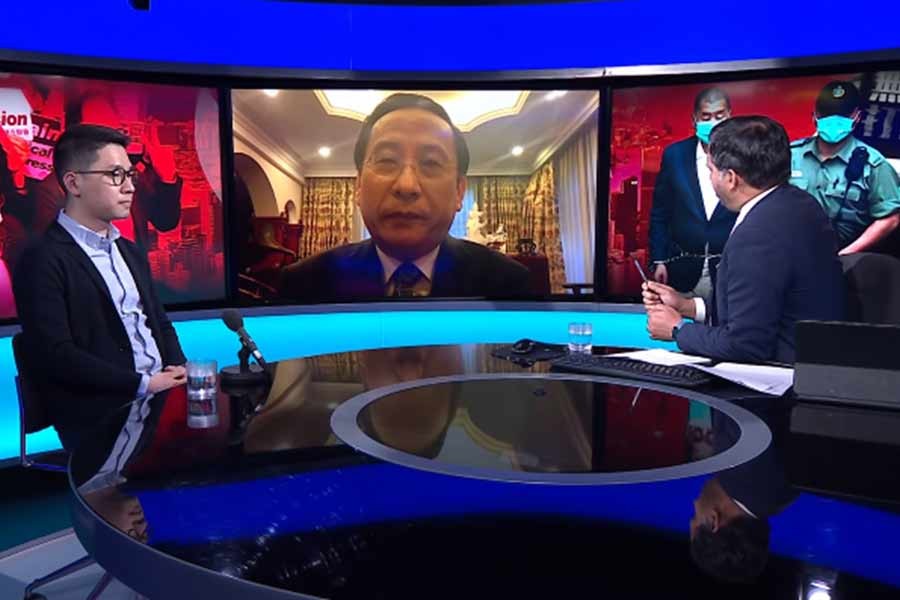Chinese scholar blames BBC for ‘biased tone’ on Hong Kong issue

Published :
Updated :

A Chinese scholar, Victor Gao, was recently invited to the BBC's Newsnight to debate Hong Kong’s politician Nathan Law after imprisonment of media tycoon Jimmy Lai and other opposition figures of the country.
After attending the programme, Soochow University Professor Victor Gao expressed his experience of attending the programme to Global Times.
Victor Gao said, “There were some major mistakes that the BBC made in its latest TV programme Newsnight, including a biased tone and misinformation on the illegal protests led by radical anti-government figures who were wrongfully deemed "pro-democracy activists.”
“When the host emphasised they were "peaceful protests," the BBC got it wrong, Gao noted.
"I understand that foreign media outlets uphold their own values, for example, by claiming that the street protests are a way of exercising democratic rights. But if they still say so after the Capitol Hill riot, it's completely wrong because the nature of rioting in Hong Kong and of storming the Capitol Hill are the same," the Chinese scholar said.
“There's another major mistake the BBC made in its program by confusing different ideas, the Chinese scholar further elaborated. For example, broadcasting an interview with Lai, who claimed that under the national security law for Hong Kong, the Chinese government has been causing more "fear" and depriving him of his basic rights, which is another false statement,” Gao said.
"Lai was recently sentenced for violating the public order ordinance in Hong Kong by taking part in illegal assemblies, which has nothing to do with the national security law for Hong Kong. The BBC got the facts wrong and spread this misinformation to the mainstream public," he said.
"Also, I hope the BBC could 'wake up' one day to begin adhering to its journalistic standards [on China-related reporting], instead of serving only as a government tool in containing China," the Chinese scholar said.


 For all latest news, follow The Financial Express Google News channel.
For all latest news, follow The Financial Express Google News channel.